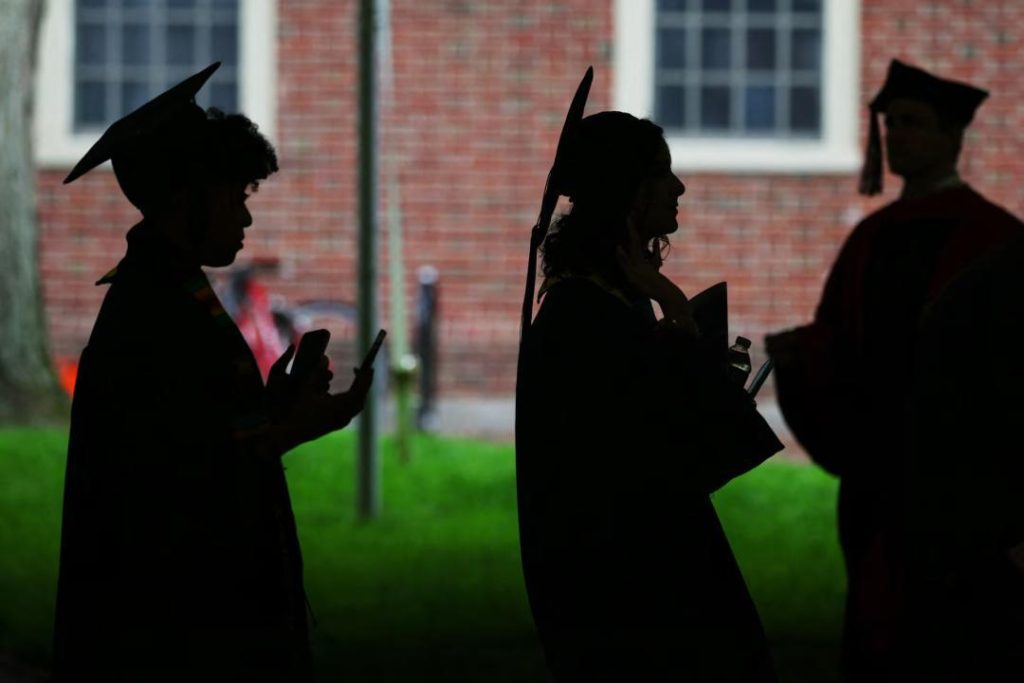
US to Revoke Visas of Chinese Students
In a recent development, the United States has announced that it will start “aggressively” revoking visas of Chinese students, including those with connections to the Chinese Communist Party or studying in critical fields. This decision has sent shockwaves across the academic community, with many wondering what prompted such a drastic move.
According to US Secretary of State Marco Rubio, the decision to revoke visas is aimed at addressing concerns about national security and the potential risks posed by Chinese students in the US. Rubio stated that the US will be “very aggressive” in revoking visas of Chinese students who pose a risk to national security, without specifying what constitutes a “risk”.
It is worth noting that China sent a record number of students to the US in the 2023-24 academic year, with 277,398 students enrolled in US institutions. This significant increase in Chinese students in the US has raised concerns about the potential implications for national security and intellectual property.
The decision to revoke visas comes on the heels of a previous announcement by the US to suspend visa appointments for students worldwide. This move was met with criticism from China, which accused the US of unfairly targeting Chinese students.
So, what does this mean for Chinese students in the US? And what are the implications for the academic community?
What does this mean for Chinese students in the US?
For Chinese students already enrolled in US institutions, the news is likely to be unsettling. Those with connections to the Chinese Communist Party or studying in critical fields may be at risk of having their visas revoked. This could lead to a range of consequences, including being forced to leave the US or being unable to continue their studies.
For those who are yet to apply for visas, the decision may be a major deterrent. With the uncertainty surrounding visa revocation, many Chinese students may be hesitant to apply for visas or to pursue their academic dreams in the US.
What are the implications for the academic community?
The decision to revoke visas has significant implications for the academic community. Many US institutions rely heavily on international students, including those from China, to fill their classrooms and bring in much-needed revenue. The loss of these students could have a significant impact on university budgets and the overall academic landscape.
Moreover, the decision could have a chilling effect on academic freedom and research cooperation between the US and China. The revocation of visas may force researchers and academics to reconsider collaborations and partnerships, potentially stifling innovation and progress.
What are the concerns about national security?
The concerns about national security that prompted the decision to revoke visas are not entirely clear. However, it is likely that the US government is concerned about the potential risks posed by Chinese students who may be linked to the Chinese Communist Party or studying in critical fields such as artificial intelligence, biotechnology, and cybersecurity.
There are legitimate concerns about the potential for Chinese students to be used as spies or to transfer sensitive technology back to China. However, it is also important to recognize that the vast majority of Chinese students in the US are simply seeking an education and are not involved in any nefarious activities.
What does this mean for US-China relations?
The decision to revoke visas is likely to further strain relations between the US and China. China has already accused the US of unfairly targeting Chinese students and has vowed to take retaliatory measures.
The decision could also have broader implications for US-China relations, potentially undermining cooperation on issues such as climate change, trade, and non-proliferation.
Conclusion
The decision to revoke visas of Chinese students is a significant development with far-reaching implications for the academic community, US-China relations, and national security. While the concerns about national security are legitimate, it is important to strike a balance between security concerns and academic freedom.
As the situation continues to unfold, it will be important for universities and policymakers to work together to find a solution that balances national security concerns with the need to promote academic cooperation and exchange.
Source:






